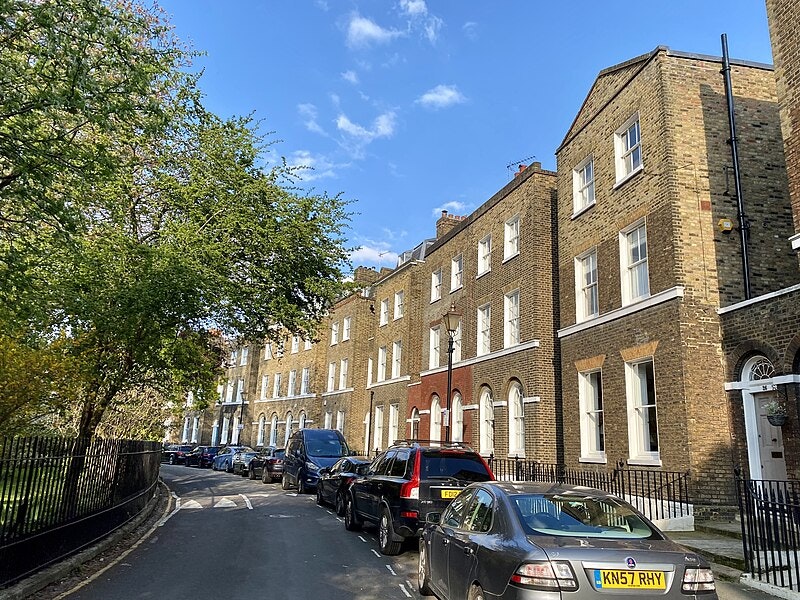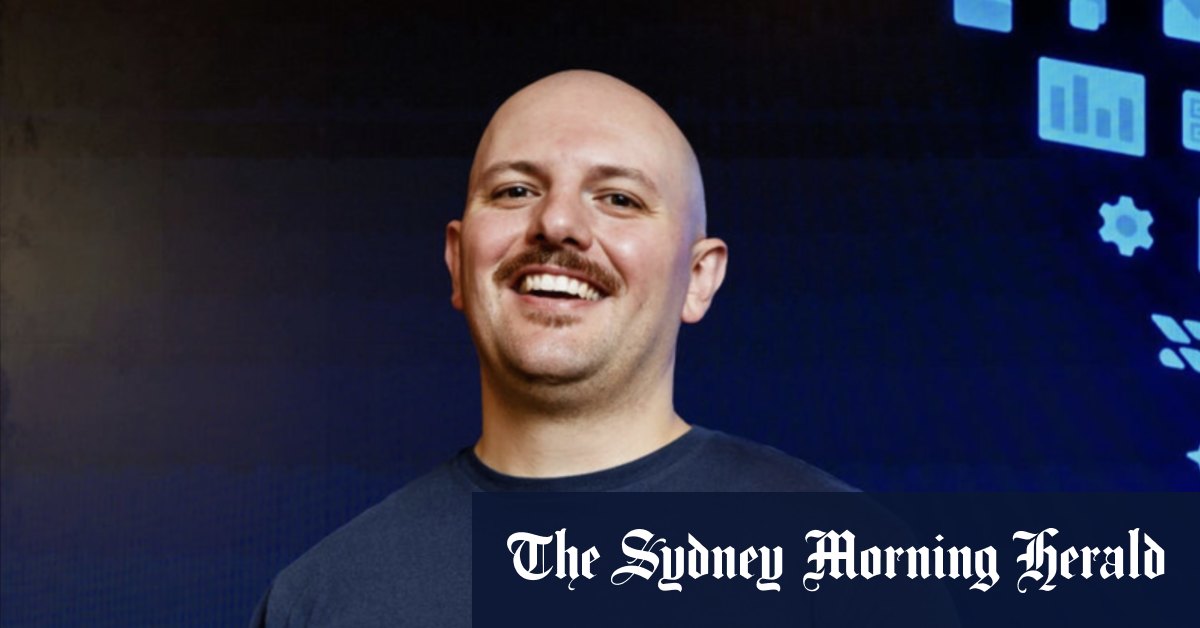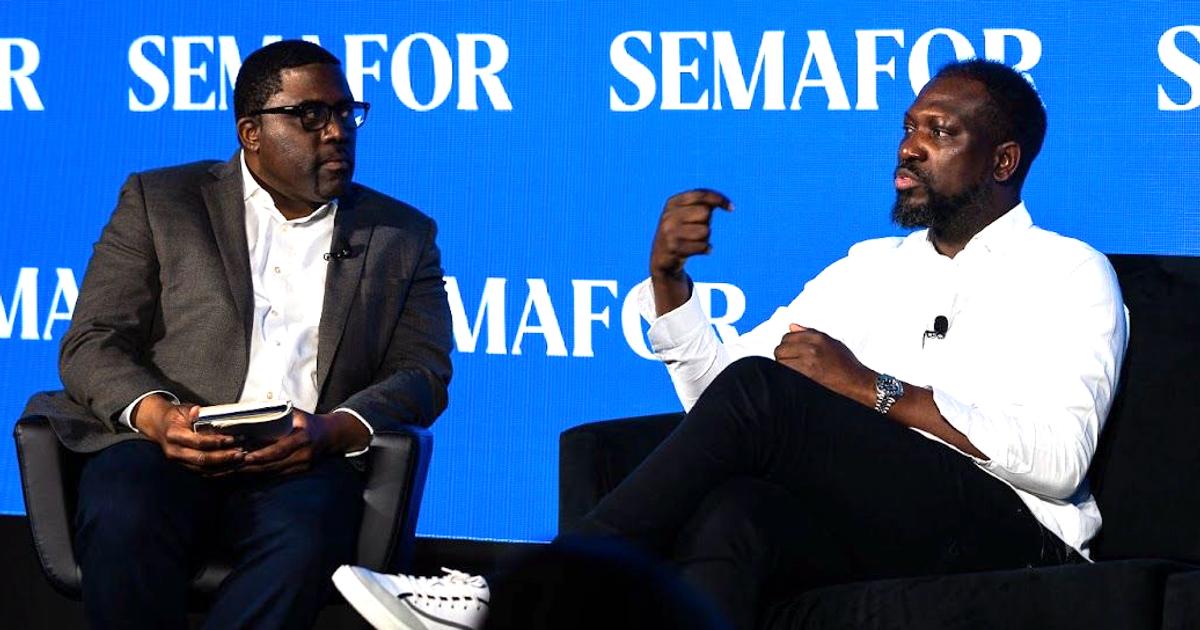If you visited the Burlington Arms in London’s upmarket Mayfair district in the first half of this year, you may have happened upon a crowd of venture capitalists, all gathered around one man.
At the centre you’d have found Ian Slater, a fifty-something British billionaire. Slater had inherited his wealth from his father, who’d sold an engineering business to construction equipment maker Caterpillar in 1998. He’d put his wealth into a family office to invest into VC firms and — in today’s tough fundraising environment — VCs were keen to get to know him.
Those who met Slater describe him as an outspoken “geezer,” often decked out in a Gant shirt and jeans. “Slater would sit in the centre like Henry VIII holding court,” said a person who attended one of the Mayfair pub trips. “Ian was the life and soul of the party,” said another.
There was just one problem. Although the VCs, fellow family offices and even the lawyer that often accompanied Slater were real, his promises of money were often not.
Five firms tell Sifted that Slater promised them money which never materialised, leaving most wondering whether he ever had the money at all.
Sifted has made multiple attempts to contact Ian Slater for comment — via email, LinkedIn and over the phone — but did not receive a reply.
A very British family office
Slater called his family office Gloucester Circus, a name taken from an 18th century housing crescent in Greenwich, where he told multiple people that his mother lived.
On LinkedIn, Slater’s profile says he was managing partner at a trading firm for nearly 11 years, before founding Gloucester Circus in 2010, described on its website as “A very British Family Office, on both sides of the pond.”
Sifted spoke to 14 people who met Ian Slater in person. He liked to talk extensively about his wealth, they said, often telling people that he owned 30 pubs — including the Prince of Wales in Covent Garden. Slater also claimed to be the co-owner of a Sofitel hotel near St James’ Park, and to hold a stake in London-based plumbing company Pimlico Plumbers.
“Ian is marmite,” said one person who met him. “You either think he’s hilarious or you think he’s incredibly crass. His favourite word is the c word.” “He was quite vulgar in the way he spoke,” said another person who met him.
The boldness of Slater was, however, something that drew people to him. Some described his brashness and informality as “refreshing” in a world of family officers who are often reserved, and as one person put it, “aloof and stuffy”.
Others who met Slater noted that he was knowledgeable about venture and how money flows around the world, making him seem all the more credible.
Gloucester Circus was not a solo operation — Slater had a number of people working for him, doing due diligence on firms and sourcing opportunities. Sources told Sifted that Slater also spoke about a venture studio he was building, called Skople.
Deal making with Gloucester Circus
The five firms Sifted spoke to all met Slater between August 2023 and May this year. The tickets offered by Slater were all multi-million.
One VC firm was introduced to Slater at the start of this year. One of the investors met up with him in a bar in London, where he explained how he had inherited wealth from his father.
The investor reports feeling slightly sceptical after the meeting, because Slater didn’t fit the typical family office mould. He says he was then reassured by the due diligence process, which he says was done comprehensively and professionally. It involved speaking with LPs about the firm, and the questions asked were the ones you’d expect, the investor says.
“Because we had an inkling, we had asked both LPs to have their guards up but they both felt the questions were very professional,” the investor says.
A few months later, a person who worked for Gloucester Circus verbally told the firm they would invest £10m, the investor said. After that, the person went quiet, so the firm followed up with Slater himself. Slater got angry and said that doing due diligence does not mean that Gloucester Circus will invest.
“A week or two after, we heard rumours in the market that he’d done the same to others,” the investor says.
Another investor says they booked a call with Slater after seeing his posts on LinkedIn — where he was very active at the time. Gloucester Circus did due diligence on the fund, which involved asking questions about the composition of its investment committee and talking to an “abnormal” amount of LPs for reference calls — six, rather than the typical two, the investor says.
Slater promised the firm millions. The investor then copied Slater in with the firm’s lawyers for the next steps. They say Slater replied angrily, saying he felt badgered and that he’d rescind his ticket. The firm sent a contact to meet Slater to understand what had happened: he apologised, but they didn’t hear from him again. In the meantime, the firm said they spoke to others and began to question Slater.
None of the five firms Sifted spoke with received a penny from Gloucester Circus. Their stories follow a similar pattern: Slater promises money to the firm and then scrambles when they ask for documents, or to discuss legal matters. In one case, Gloucester Circus pledged money, conducted due diligence on the firm and then, in an email seen by Sifted, Slater denied that he had ever offered the firm money.
Promising money to a fund is not legally binding and it would always be open to an investor to pull out after conducting due diligence. One firm Sifted spoke with noted that legitimate family offices will sometimes promise money and not deliver.
All the firms Sifted spoke with noted that, before the money was pledged, Slater conducted forensic due diligence, speaking with more of their LPs and portfolio companies than family offices usually do. The rigorous due diligence helped to reassure funds, they said.
So who is Ian Slater?
In July this year, the number of VCs waiting on money from Slater had grown and disgruntled investors were beginning to talk to each other. Slater was eventually kicked out of a Whatsapp group for family offices and VCs. “The group was like a rave, we’d kicked the charlatans out!” one person recounts.
With Slater removed, speculation into whether any of his story was real went wild.
Some sources Sifted spoke with said they’d heard Slater’s wealth was real but caught up in probate after his father’s death, complicated by the fact his mother has dementia.
Most people Sifted spoke with said that they believed Slater’s father really had died, in January 2023. In the UK’s probate register, there is one on-going case involving a man who died that month with the same name as Ian Slater’s father, but that person does not have any children named Ian.
Other documents seen by Sifted also contradict Slater’s claim that he inherited billions.
There’s a bankruptcy filing from 2010 for a man named Ian Slater, with an address at a bungalow in Bexleyheath, south east London. Multiple people who knew Slater said the address matched one they understood to be his. Sifted matched social media mentions of Ian Slater’s family members with those on the electoral register for the same Bexleyheath address.

Although the filing is from 2010, the bankruptcy status is still on-going today.
Multiple people Sifted spoke with said that, although Slater spends a lot of time in London, he mainly lives in Romania, where his partner is from. Several people reported Slater joining video calls from a communist-looking block in Bucharest, and one person said they believed Slater had been based in the city for 11 years.
On Companies House, it shows that Ian Slater, living at the same address in south east London, had been the director of seven companies between 2006 and 2010, all of which are now dissolved.
Sifted was unable to find any company records for Gloucester Circus. As a bankrupt individual, Slater would not have been able to register as director of a company in the UK.
And those businesses Slater claimed to own, or have stakes in? Sifted has found no evidence that shows Slater is an owner of the Prince of Wales pub and the Sofitel St James or that he holds stakes in Pimlico Plumbers.
The emperor’s new clothes
In London, Slater’s legitimacy came from his network. “Everyone knew of him, but no one really knew him,” said one investor.
At the Mayfair pub gatherings, people say they would look around the room and take comfort in the fact that others there — well-respected VCs, other family offices, top lawyers — believed Slater to be genuine. He was typically on a first name basis with most of the people at VC gatherings, one source said. Another said he would often make introductions between people, which added to his credibility.
“He had enough legit people around him that when you questioned it, you thought, well, they’ve done due diligence on him,” says one investor. “We were all looking at each other; it was like the emperor’s new clothes. We all thought ‘well, you wouldn’t be here if it wasn’t real,’” says another person.
The current difficulty in raising money from LPs didn’t help. One investor speculates that Slater continued as long as he did because VCs simply wanted to believe the story was real, and the potential upside outweighed the downside. “The carrot is so big, so you just keep going along with it,” they said.
Several people Sifted spoke with said they felt suspicious of Gloucester Circus early on, but continued because they couldn’t work out what the ruse would be, if it were one. It’s something that still niggles at people who encountered Slater: what did he stand to gain?
Some put it down to ego — that Slater enjoyed being the most important person in the room, for a moment.
What worries others Sifted spoke with is the forensic due diligence Gloucester Circus did on funds, collecting bank details and personal information. “What’s he doing with all that data?” questions one person, although Slater would likely have had to sign confidentiality agreements before conducting the due diligence.
The family office world
Family offices are the most opaque part of the tech ecosystem. Many family offices invest in traditional industries like property, but some in Europe are increasingly directly investing in startups and becoming LPs in VC funds. Often, family offices are guarded about where their wealth comes from and where they invest it; some even invest under aliases to remain private. This sets a precedent, some argue, that can be exploited by others.
The murkiness of the family office world is compounded by the fact that there is no official or regulatory standard you need to become one. In theory, any billionaire could come along and say they have wealth to invest.
One investor who encountered Gloucester Circus says he hopes the Ian Slater case serves as a lesson to the family office world about how they treat VC firms.
They said that VCs are sometimes asked to prove their worth to family offices above other competitor funds, by doing due diligence on deals for them, or even sourcing staff for portfolio companies.
“Family offices will ask you to fly to places and do tasks for them,” they said. The investor recounted doing so for family offices before he was sure they were genuine about investing.

“The biggest issue isn’t the fake family offices, it’s the real ones who act like fake ones and ask you to do a load of tasks,” said the investor, adding that they hope the Gloucester Circus case will encourage family offices to be more transparent about their intentions.
Jonathan Hollis, managing partner of advisory firm Mountside Ventures, which organises community events for family offices, agrees that VCs have to invest in relationship building.
“Family offices require a sustained and long-term relationship before making investment decisions,” he says. “It might mean helping out with existing portfolio companies, multiple social engagements, sharing deal-flow or [investment committee] memos to show the way you work. If they’re serious, that’s a worthwhile thing to do.”
So how do you work out if they are serious? Family offices don’t need to advertise themselves, Hollis says, so the louder people shout, the less likely it is that they’re genuine. “If someone claims to be a single family office and you see LinkedIn activity from their account, you can assume they’re not.”
As for Ian Slater, most believe his reign to be over. “He’s been banished from Mayfair,” says one investor. Though another person Sifted spoke with cautioned that two people known to work with Slater had been seen at an industry event as recently as November.
Did you experience Gloucester Circus or know more? Get in touch: [email protected] or [email protected]
Correction: on 16th December this piece was amended to reflect that Sifted’s search for evidence on Slater’s ownerships of Pimlico Plumbers and the Prince of Wales was via shareholder breakdowns rather than the Land Registry.












Leave a Reply